Florian Mathis and Mohamed Khamis

Challenges Using Head-Mounted Displays in Shared and Social Spaces
What are the effects of using HMDs in public?
How might we design HMDs to be used in public?
What will make an HMD socialy acceptable?
Everyday mobile usage of AR and VR Head-Mounted Displays (HMDs) is becoming a feasible consumer reality. The current research agenda for HMDs has a strong focus on technological impediments (e.g. latency, field of view,
locomotion, tracking, input) as well as perceptual aspect (e.g. distance compression, vergence-accomodation ).
However, this ignores significant challenges in the usage and acceptability of HMDs in shared, social and public spaces.
This workshop will explore these key challenges of HMD usage in shared, social contexts; methods for tackling the virtual isolation of the VR/AR user and the exclusion of collocated others;
the design of shared experiences in shared spaces;
and the ethical implications of appropriating the environment and those within it.
Attendees will share experiences of using HMDs in public environments and discuss the new problem space with the aim of defining new research priorities in the community.
After the official part, all Attendees are invited to participate in a field trip to experience and discuss the use of HMDs in public places (subway, coffee, etc.).
The organizers of the workshop will provide hardware and material.
Workshop Date and Location
Date: 05 May 2019
Time: 08:00 - 14:00
CHI 2019 Room: Alsh 2
Participants are invited to take part in the unofficial field trip.
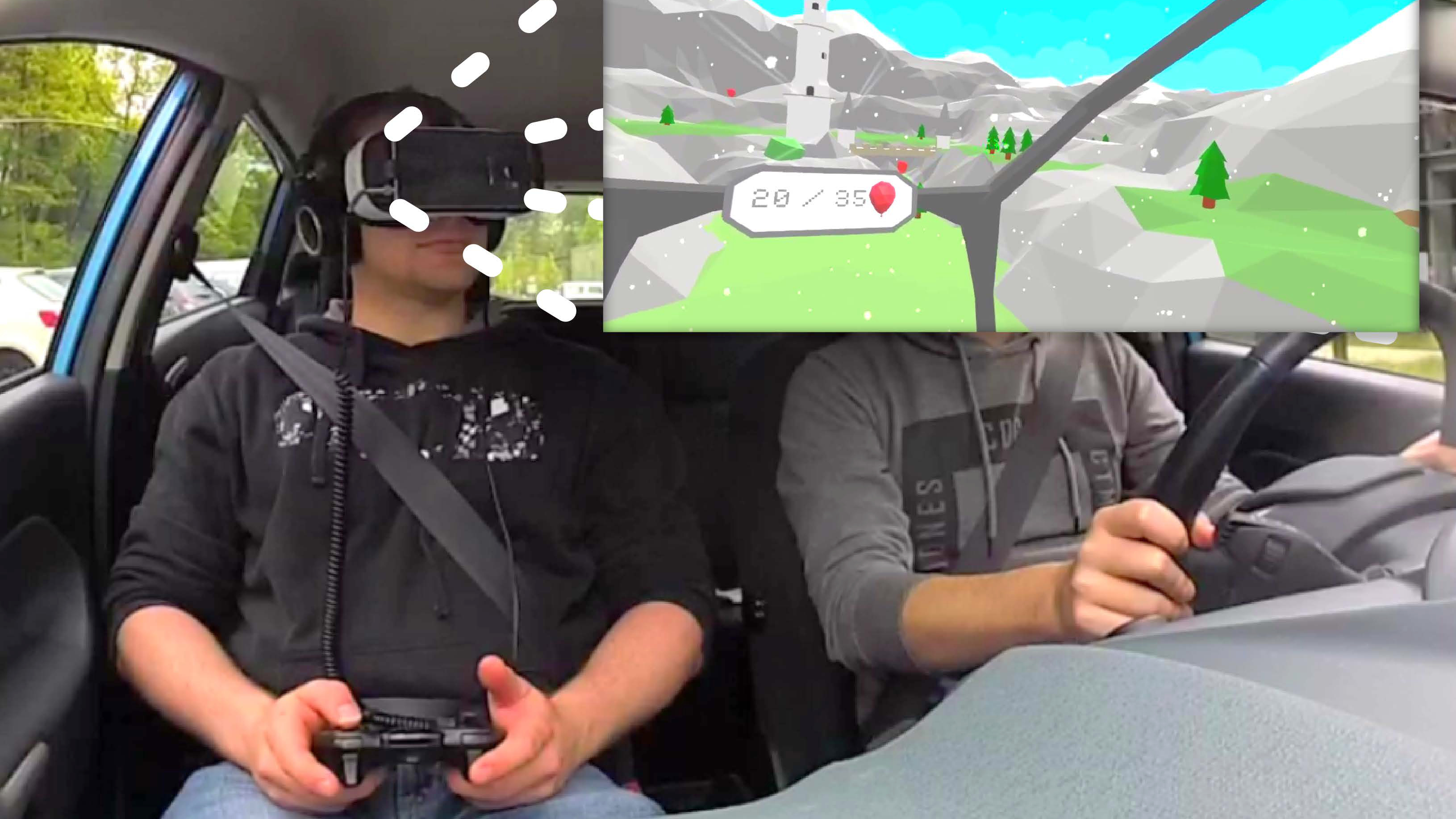
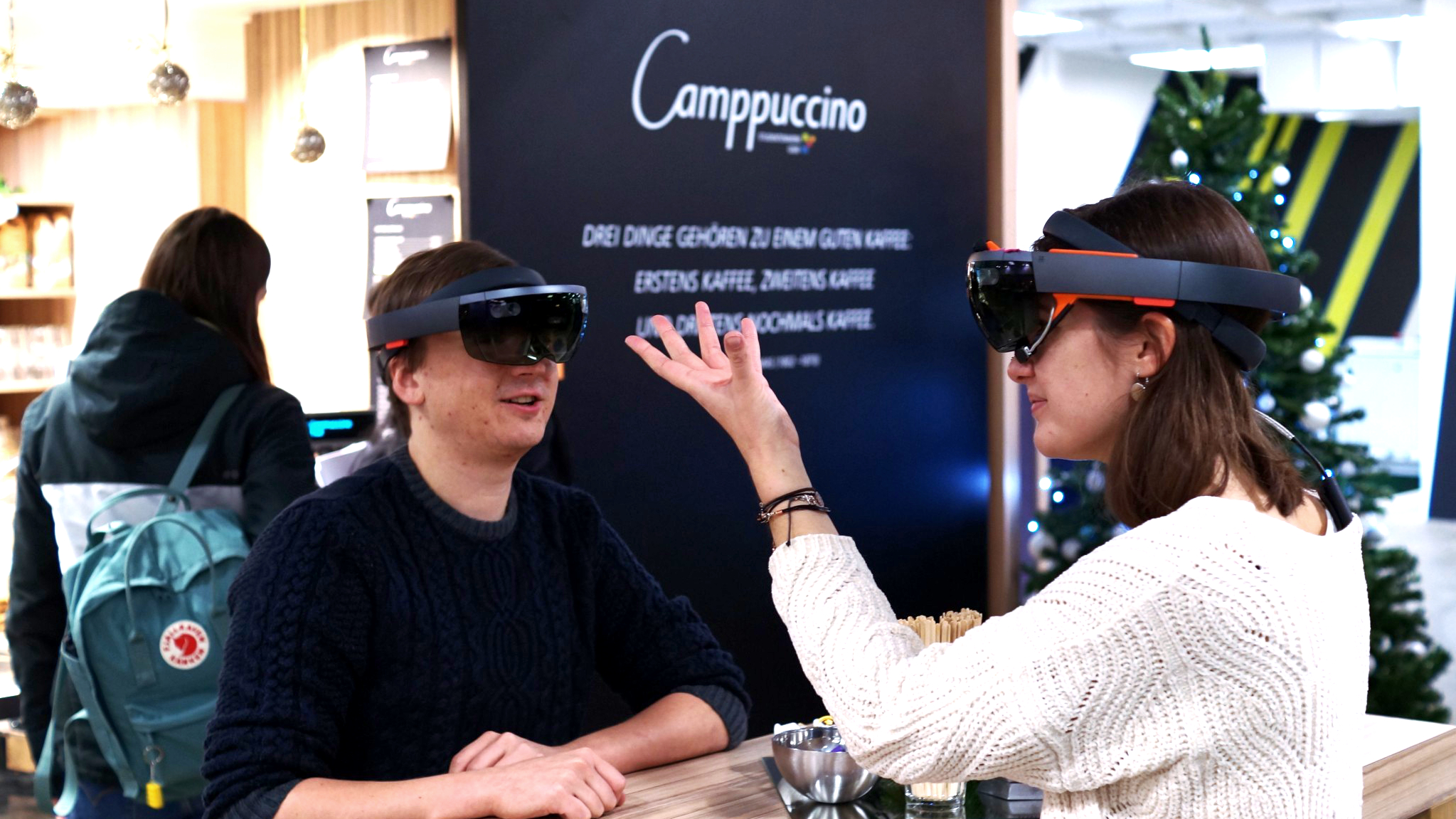
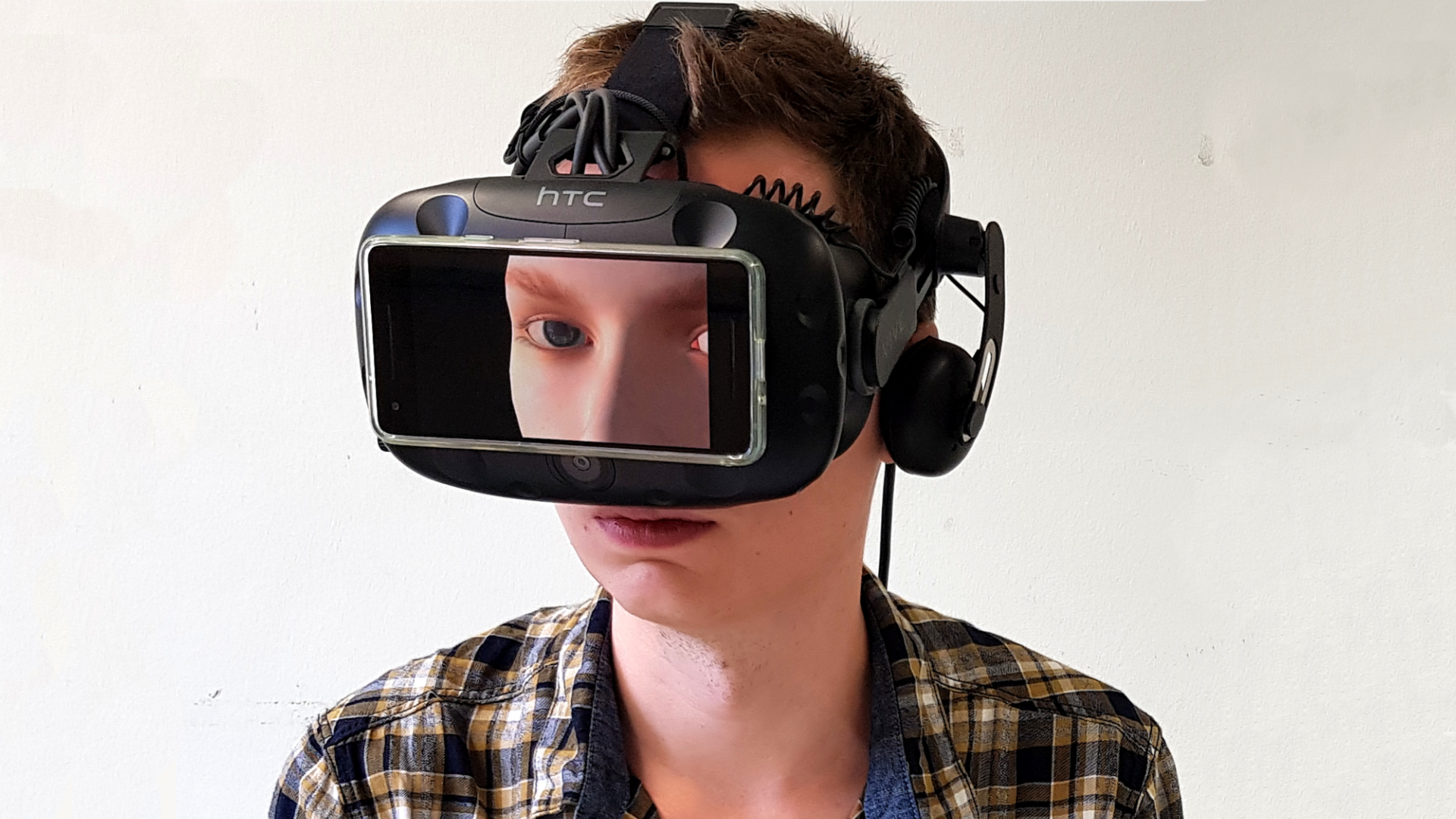
Call for Participation
Everyday mobile usage of Head-Mounted Displays (AR and VR) is becoming a feasible consumer reality. The current research agenda for these devices has a strong focus on technological impediments (e.g. locomotion, tracking, input devices). This ignores significant challenges in the usage and perception of HMDs in shared and social spaces where HMD users are co-located with non-HMD users and are likely to be observed while interacting. We invite academics, artists, designers and practitioners to create a common understanding of upcoming challenges and derive a research agenda for this new topic. In this CHI 2019 workshop we offer a basis for exchange between different disciplines to promote the development of new concepts and ideas to make HMDs successful in public.
Submission Deadline: February
Notification: February 28th, 2019
Workshop Date: May 05th, 2019 (08:00 - 14:00)
Submission via Easy Chair
Relevent topics include, but are not limited to:
- Social Acceptability of HMD Usage
- Tackling Isolation and Exclusion
- Shared Experiences in Shared Spaces
- Ethical Implications of Public Mixed Reality
Workshop Program
The workshop will be held from 9:00-14:00 8:00-14:00. We will have two keynotes and two slots for talks, followed by a discussion round (details below). We invite all participants to join us after the official program at a self-organized field trip to experience the usage of HMDs in Glasgow's inner city.
*** Detailed Programm ***
08:00 - 08:15 Intro & Welcome
08:15 - 09:15Keynotes
09:15 - 10:2010:20 - 10:35 Coffee BreakLightning Talks 1
The order of the talks will be similar to the list of contributions below.
10:35 - 11:00Lightning Talks 2
The order of the talks will be similar to the list of contributions below.
11:00 - 12:30Lean Coffee Discussion
12:30 - 13:1513:15 End of official ProgramWrap Up and Hands-On Discussion
Unofficial Part:
After the official workshop, there will be a voluntary/optional half-day activity looking at public/social use of HMDs in the wild. This part is not affiliated with CHI and attendees take part on their own responsibility, with all attendees invited to join. We would strongly encourage all participants to consider their availability for this part of the day prior to submission.
13:15 - 16:00Field Trip
14:00 - 15:00 Lunch - Using devices in the group during lunch
14:00 - 16:00 Explore Public/Social Scenario + Record observations
16:00 - 17:0018:00 - Open End Dinner. Location: TBAGroupwork and Discussion of Experience
Result Presentation and Open Discussion (Location TBA)
Contributions
André Zenner, Donald Degraen and Antonio Krüger
Michael Prilla, Niklas Osmers, Oliver Blunk and Marc Janßen
Steven Goodman, Dhruv Jain, Jon Froehlich, Brock Craft and Leah Findlater
Marion Koelle and Susanne Boll
John Desnoyers-Stewart
Joseph O’Hagan
Juliano Franz, Joseph Malloch and Derek Reilly
Katy Madier, Rhea Kulkarni and Michael Nebeling
Lev Poretski, Joel Lanir, Ofer Arazy and Oded Nov
Cuong Nguyen and Stephen DiVerdi
Fabian Göbel, Tiffany C.K. Kwok and David Rudi
Sylvia Rothe and Heinrich Hussmann
Nicola Binetti, Tianchang Cheng, Isabelle Mareschal, Duncan Brumby, Simon Julier and Nadia Bianchi-Berthouze
Damien Brun, Charles Gouin-Vallerand and Sébastien George
Ceenu George
Jenny Waycott
Pejman Saeghe, Sarah Clinch, Bruce Weir, Stephen Pettifer and Robert Stevens
Organizers
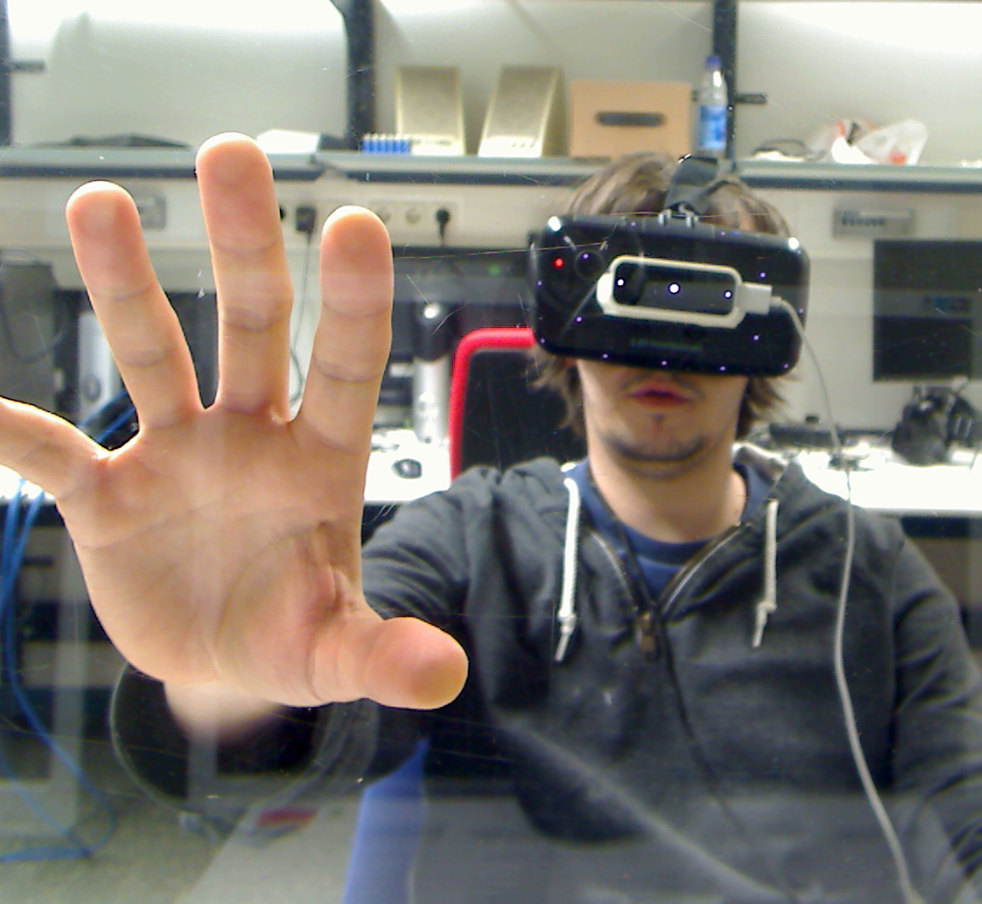
Jan Gugenheimer
Jan Gugenheimer is a research associate at Ulm University working in the fields of mobile/nomadic virtual reality and asymmetric co-located interaction for VR HMDs. His research explores how HMDs can be designed to be more inclusive for non-HMD users and enable the HMD user to break out of the isolation the technology is currently imposing.
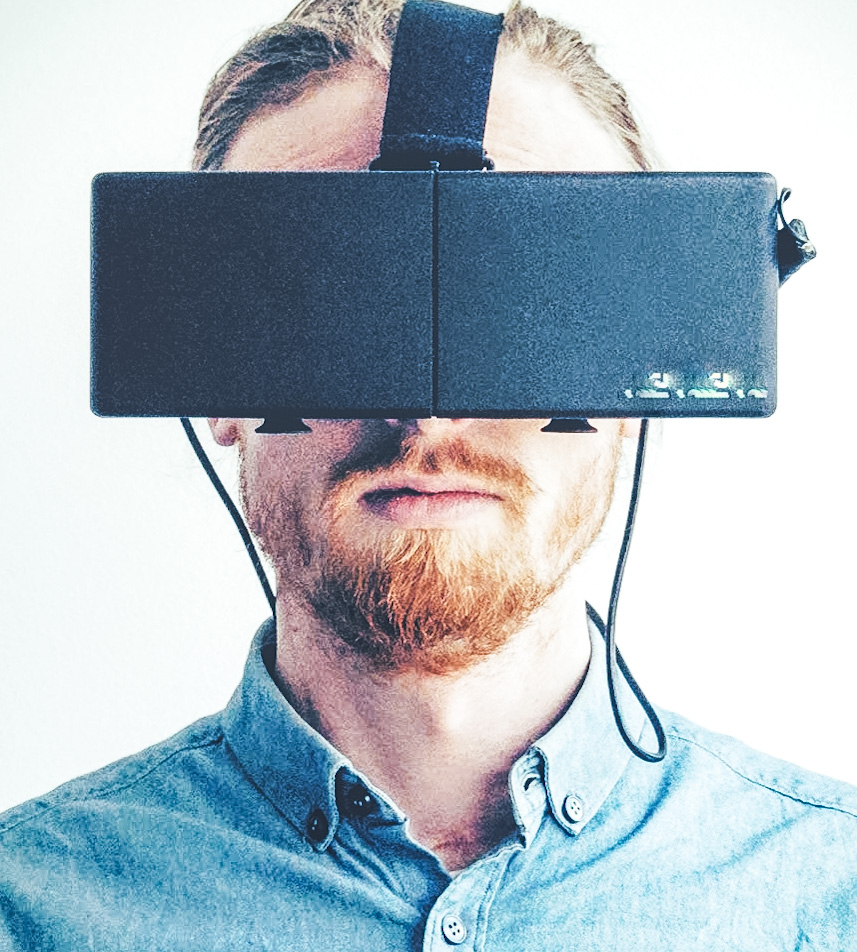
Christian Mai
Christian Mai is a research associate at LMU Munich. In his work he addresses the challenges appearing with the introduction of fully immersive HMDs into everyday contexts. The goal of his work is to understand the problemspace arising and offer solutions suitable for everyday use.
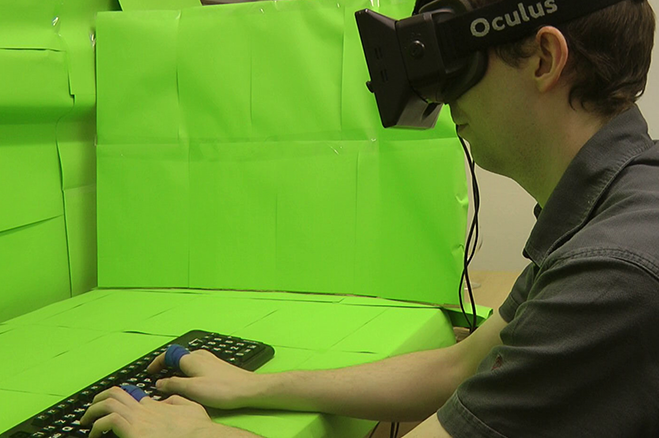
Mark McGill
Mark McGill is a research associate in the School of Computing Science at the University of Glasgow. His research has explored augmented virtuality, shared at-a-distance VR experiences, VR locomotion and passenger usage of VR/AR headsets in-transit, with an emphasis on overcoming the key usability impediments.
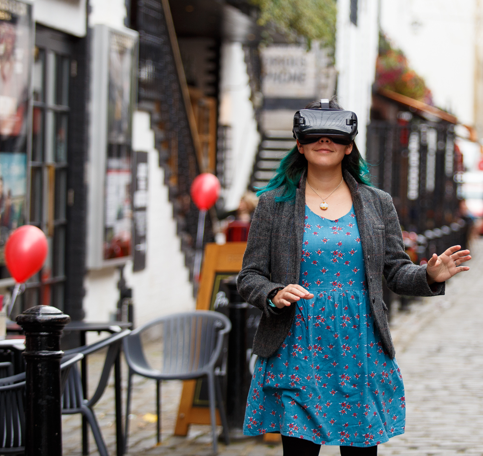
Julie R. Williamson
Julie Williamson is a lecturer in human computer interaction in the School of Computing Science at the University of Glasgow. Her research focuses on interaction in public spaces, including non-planar displays, virtual reality, and tangible interfaces. She is an expert in public evaluation and research on social acceptability of novel technologies.

Frank Steinicke
Frank Steinicke is a professor for Human-Computer Interaction at the Department of Informatics at the University of Hamburg. His research is driven by understanding the human perceptual, cognitive and motor abilities and limitations in order to reform the interaction as well as the experience in computer-mediated realities.

Ken Perlin
Ken Perlin is a professor in the Department of Computer Science at New York University, where he directs the Future Reality Lab. His research interests include socially shared virtual and augmented reality, computer graphics and animation, user interfaces and education. He is hoping to help build a better world where our computer-augmented interactions will be more like Harry Potter meets Harold and the Purple Crayon.
Contact
Is anything not clear? Do you miss information or just need help with the application process? Sent us a message:
